Azure Storage is a Microsoft-managed service providing cloud storage that is highly available, secure, durable, scalable, and redundant. Azure Storage includes Azure Blobs (objects), Azure Data Lake Storage Gen2, Azure Files, Azure Queues, and Azure Tables.
In this task, we will create a storage account, then work with blob storage files, and Monitor.
Create a storage account
- Sign in to the Azure portal
- Search for and select Storage accounts
- Click on Create
-
Select the subscription in which to create the new storage
account. Choose a new or existing resource group to organize
and manage your storage account together with other resources.Redundancy available on Azure, We will use Locally redundant storage (LRS) for this task

Click Review + Create to review your storage account settings and allow Azure to validate the configuration.
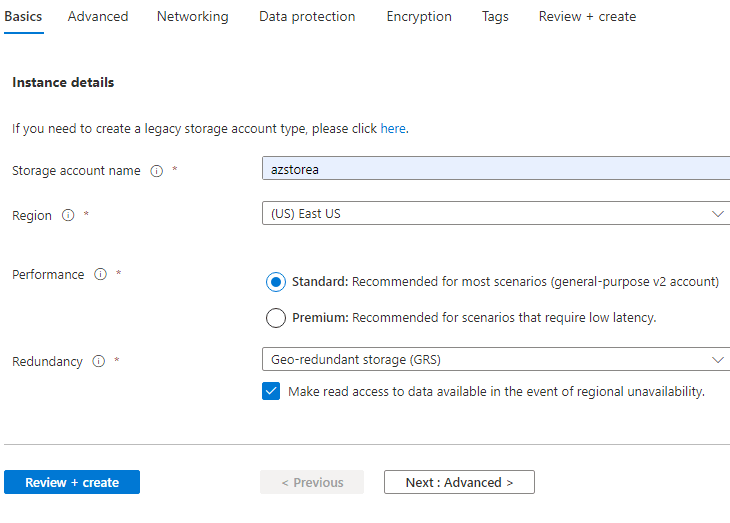
Wait for your deployment is complete then click Go To Resource

OR
From the Home page, search for and select Storage accounts and ensure your new storage account is listed.

Work with blob storage
- Click the name of the new storage account, scroll to the Data storage section in the left menu, and then click Containers.

- Click + Container and complete the information. Use the Information icons to learn more. When done click Create.
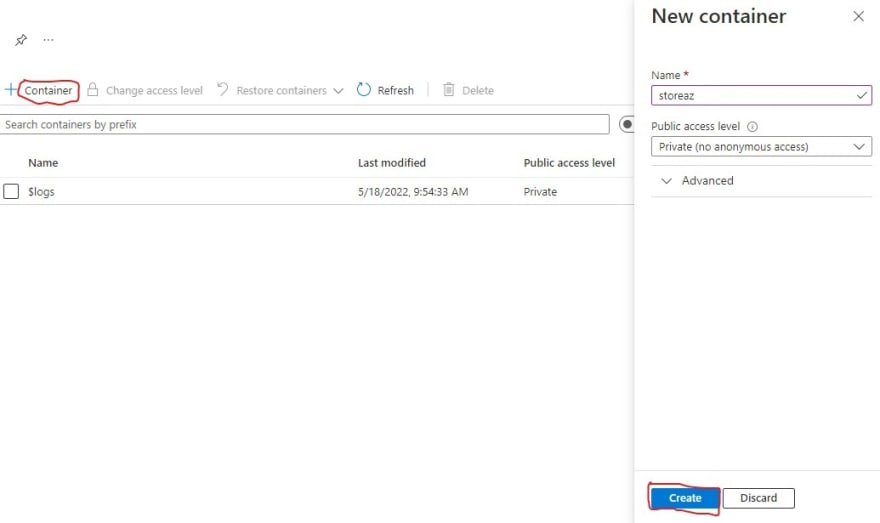
- Open a new browser window and search Bing for an image of a flower. Right click on the image and save it to your downloads.
- Back in the Portal, click on container1 , and then select Upload.

- Browse for the image file you just saved on your local computer. Select it and then select upload.
- Click the Advanced arrow, leave the default values but review the available options, and then click Upload.
Note: You can upload as many blobs as you like in this way. New blobs will be listed within the container.
- Once the file is uploaded, right-click on the file and notice the options including View/edit, Download, Properties, and Delete.
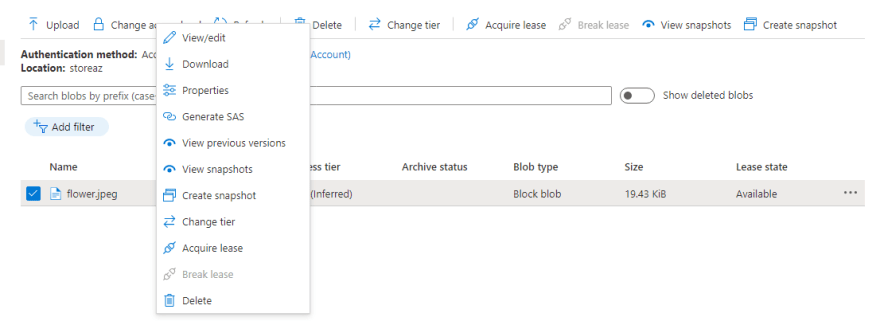
How to Monitor the created storage account
Return to the storage account blade and click Diagnose and solve problems.

Explore some of the most common storage problems. Notice there are multiple troubleshooters here.
On the storage account blade, scroll down to the Monitoring section and click Insights. Notice there is information on Failures, Performance, Availability, and Capacity. Your information will be different.


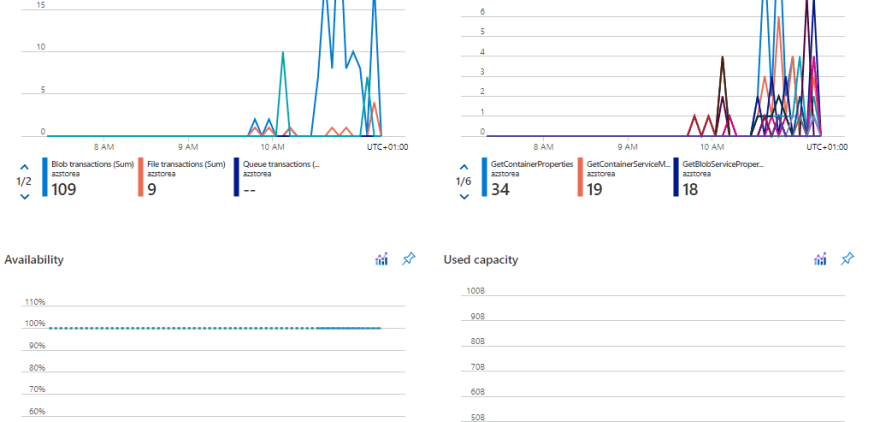
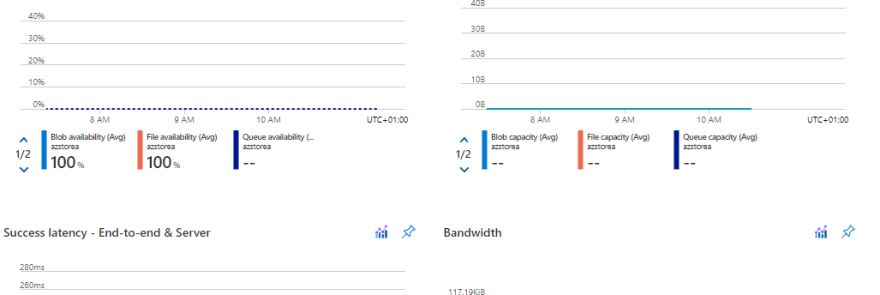
Awesome! You have created a storage account, then worked with storage blobs.
Note: To avoid additional costs, you can optionally remove this resource group. Search for resource groups, click your resource group, and then click Delete resource group. Verify the name of the resource group and then click Delete. Monitor the Notifications to see how the delete is proceeding.







Top comments (0)